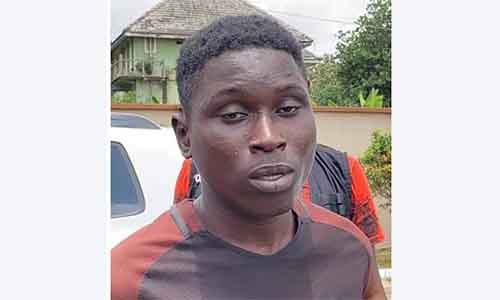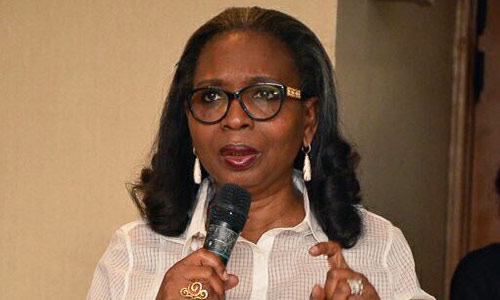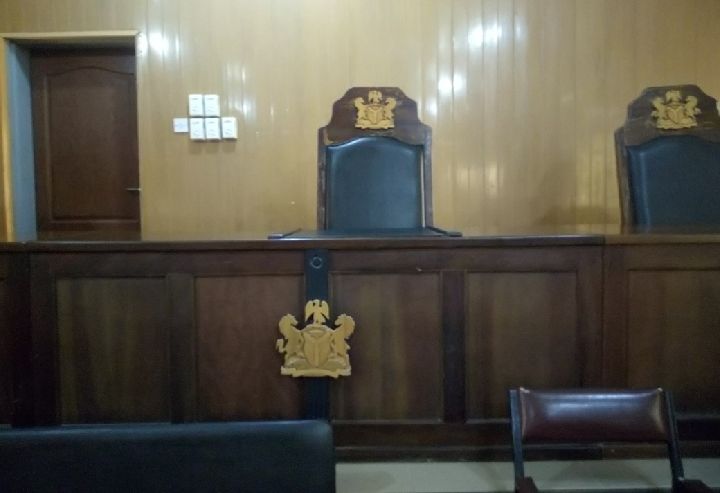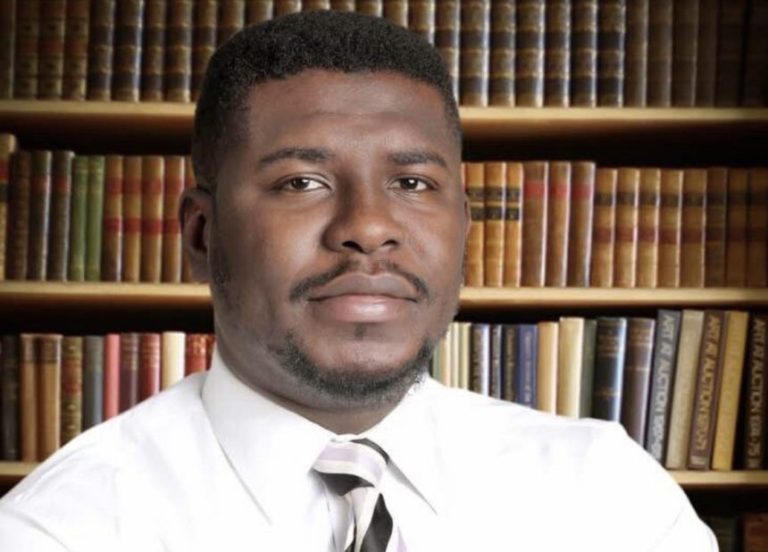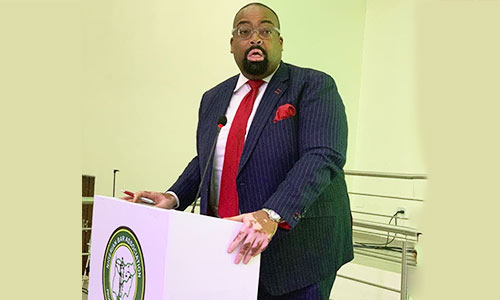Daily Law Tips (Tip 640) by Onyekachi Umah, Esq., LL.M, ACIArb(UK)
Should Landlord Stop Rent-Owing Tenants from Moving Out?.
In life you are either a tenant or a landlord and in some cases both. Many tenancy relationships go south with tenants failing to pay rents for years or landlords being rude and violating rights of tenants. The rate of landlords seeking to recover backlogs of unpaid rents (debts) from their tenants and former tenants is increasing geometrically across Nigeria. It is common to see cases of tenants who moved out of property “nicodemusly” (secretly) and ran away with unpaid rents. Often, bold rent-owing tenants or tenants that damaged any property get stopped by their landlords (using law enforcement agents, estate security and louts/thugs), when such tenants attempt to vacate property. This work focuses on whether a landlord should stop a tenant from vacating his property for any reason whatsoever.
Most tenancy agreements in Nigeria are made orally, with majority of rents being below One Million Naira (N1,000,000) (ie., $2,777) per year. Since landlords are prohibited from forcing tenants out of their property, the only way to recover rent or eject a tenant is by serving valid Notices (like, Notice to Quit and Notice of Landlord’s Intention to Recover Property) and then suing tenant in court. However, while landlord may be engaging tenant in a legal warfare, in some cases, tenant may elope from property abandoning his unpaid rent. Generally, without social security numbers, reliable house address system and records, most persons in Nigeria cannot be easily tracked/accessed. So, many are the losses of landlords in tenancy relationships in Nigeria. However, a hybrid tenancy agreement will reduce the troubles of a landlord. Click their link to learn more on Hybrid Tenancy Agreement.
There are fundamental human rights in Nigeria and there are rights that every person, institution or agency must respect. Among the human rights in Nigeria are; Right to dignity of human person, Right to Personal Liberty, Right to private and family life, Right to Freedom of thought, Conscience and Religion, Right to peaceful assembly and association, and Right to Freedom of Movement. Harassing, intimidating and force a rent-owing tenant or any person to remain in a property (not allowing such person to move out) by a landlord or his agents (including law enforcement agents and louts) is a violation of the above listed human rights. Owing rent/debt or having a case in court or an investigation at any law enforcement agency is not an excuse/justification for such violation. Violation of any human right comes with huge consequences as will be shown below.
Below is how stopping any tenant from moving out of property, translates to violation of fundamental human rights in Nigeria:
1. Where a landlord stops a tenant from moving out of property for any reason whatsoever, it is often an ugly sight. The tenant is often forced to stay back against his wish with unimaginable force, verbal abuse, harassment and intimidation. These are signs of torture, inhuman and degrading treatment. The tenant at that point is treated less than a human being. This is a violation of “Right to Dignity of Human Person”.
2. Where a landlord stops a tenant from moving out of property for any reason whatsoever, the personal liberty of the tenant is violated. Since the tenant is not allowed to move out, his liberty is violated illegally without any court order or reasonable suspicion of a crime. Moving out of property is not a proof of attempting to run away with debt and even running away with debt or from landlord (creditor) is not a crime in Nigeria. So, stopping a tenant from moving out of a property is a violation of the tenant’s “Right to Personal Liberty”.
3. Where a landlord stops a tenant from moving out of property for any reason whatsoever, it often involves unlawful use of law enforcement agents, estate security and louts to keep tenant in his property. The law enforcement agents, estate security and louts of landlord, supervise home, correspondence, and communication of the tenant. This is a violation of tenant’s “Right to Private and Family life”.
4. Where a landlord stops a tenant from moving out of property for any reason whatsoever, movement of tenant is restricted and his personal space violated. Often the violators (landlord and his agents) will not permit the tenant to effectively use or leave the property or to leave with his personal belongings. This may affect the tenants access to his religious group/building and tenant’s desire to manifestly propagate his religion or belief in worship, teaching, practise and observance. Clearly this translates to violation of “Right to Freedom of Thought, Conscience and Religion”.
5. Where a landlord stops a tenant from moving out of property for any reason whatsoever, this may include landlord stopping the tenant from hosting visitors and groups. Many landlords want by all means, to embarrass the tenant and muscle the tenant to pay rent, this may include chasing away guests of tenant or not allowing tenant to leave and attend meetings and events. Stopping a tenant from freely assembling and associating with any person is a violation of human rights. Specifically, it is a violation of “Right to peaceful assembly and association”.
6. Where a landlord stops a tenant from moving out of property for any reason whatsoever, there is an obvious restriction of movement of tenant. Every citizen of Nigeria is entitled to move freely throughout Nigeria and to also reside in any part of Nigeria. Where a tenant is stopped from moving out, such tenant’s movement is unlawfully limited and he is also being forced to reside in a part of Nigeria against his wish. This is an unlawful violation of “Right to Freedom of Movement”.
The above six (6) fundamental human rights that landlords violate when stopping a tenant from moving out of property, are sacrosanct, unshakable and untouchable by landlords. Hence, any violation by a landlord will ignite serious legal consequences. Fundamental human rights are constitutional rights and only a court of law (or any person acting under an order of court or under a federal law), that can lawfully limit or restrict them. Click this link to see what human rights can be legally restricted in Nigeria. Hence, no person, company, institution, landlords, tenants, law enforcement agencies/agents, community, association or group can attempt to or violate the fundamental human rights of a tenant for any reason whatsoever.
Where a tenant’s fundamental human right is violated, the tenant or his well-wishers (family, supporters or any person whatsoever) can sue the landlord and his agents (including any person involved; like law enforcement agency/agent or estate security) in court for enforcement of human rights. Courts in Nigeria attend to cases of fundamental human rights very fast, and such cases can be ended in less than 3 months. Among other things, courts will award huge damages (monetary fines amounting to millions of Naira) against the landlord and his agents to be paid to the tenant. Also, cases for trespass and recovery of losses or damaged items belonging to the tenant can be brought before a court against the landlord and his agent. Tenants are encouraged to speak to their lawyers!
My authorities are:
1. Sections 34, 35, 37, 38, 40, 41, 45 and 46 of the Constitution of the Federal Republic of Nigeria, 1999.
2. Sections 1, 2, 4, 6, 7, 8, 9, 10, 13, 19 and 20 of the Recovery of Premises Act 1945, Laws of the Federation of Nigeria (ABUJA) and other similar tenancy laws across the states in Nigeria.
#SabiLaw
#DailyLawTips
#SabiBusinessLaw
#SabiElectionLaws
#SabiHumanRights
#SabiLawOnBeatFm
#SabiLawLectureSeries
#CriminalJusticeMonday
#SabiLawVideoChallenge
Speak with the writer, ask questions or make inquiries on this topic or any other via [email protected] or [email protected] or +2348037665878. To receive our free Daily Law Tips, follow our Facebook Page:@LearnNigerianLaws, Instagram: @LearnNigerianLaws and Twitter: @LearnNigeriaLaw
Please share this publication for free till it gets to those that need it most. Save a Nigerian today! NOTE: Sharing, modifying or publishing this publication without giving credit to Onyekachi Umah, Esq. and “LearnNigerianLaws.com” is a criminal breach of copyright and will be prosecuted.
This publication is the writer’s view not a legal advice and does not create any form of relationship. You may reach the writer for more information.
Powered by www.LearnNigerianLaws.com {A Free Law Awareness Program of Sabi Law Foundation, supported by the law firm of Bezaleel Chambers International (BCI).}


